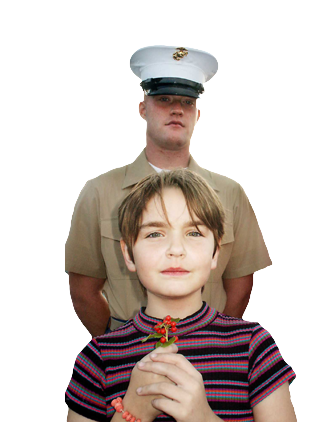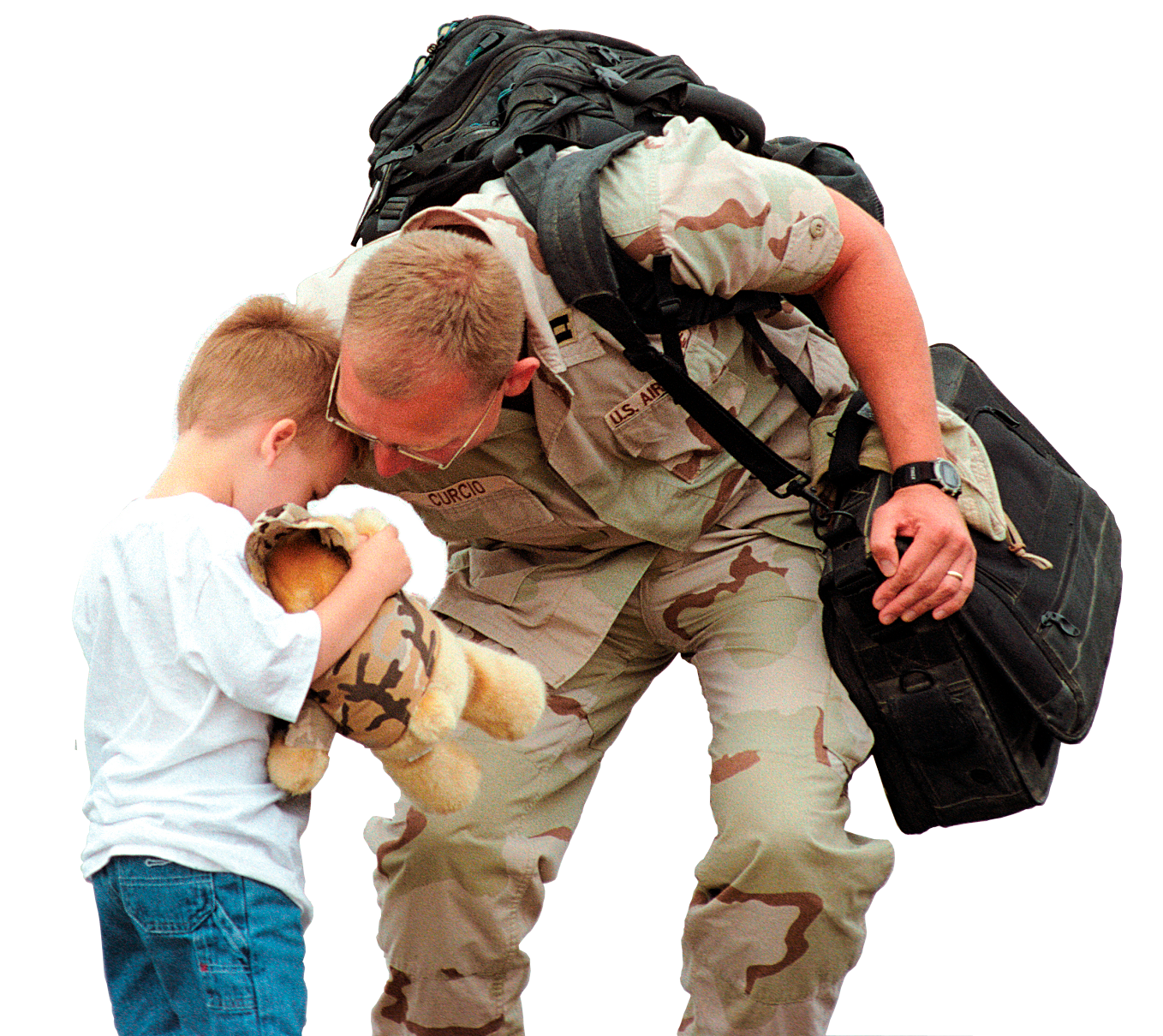[caption id="attachment_3758" align="alignleft" width="302"] Air Force Senior Airman Mario Webb and his son, Genghis, play "monster chase" in the yard of the Ronald McDonald House in New Haven, Conn., July 20, 2010. The Webb family has been staying at the Ronald McDonald House following Genghis’ liver transplant surgery in April. Webb donated 20 percent of his liver to his son. U.S. Air Force photo by Staff Sgt. Mareshah Haynes[/caption] NEW HAVEN, Conn. – An airman from Hurlburt Field, Fla., has given his 2-year-old son a new lease on life.
Air Force Senior Airman Mario Webb and his son, Genghis, play "monster chase" in the yard of the Ronald McDonald House in New Haven, Conn., July 20, 2010. The Webb family has been staying at the Ronald McDonald House following Genghis’ liver transplant surgery in April. Webb donated 20 percent of his liver to his son. U.S. Air Force photo by Staff Sgt. Mareshah Haynes[/caption] NEW HAVEN, Conn. – An airman from Hurlburt Field, Fla., has given his 2-year-old son a new lease on life.
 Air Force Senior Airman Mario Webb and his son, Genghis, play "monster chase" in the yard of the Ronald McDonald House in New Haven, Conn., July 20, 2010. The Webb family has been staying at the Ronald McDonald House following Genghis’ liver transplant surgery in April. Webb donated 20 percent of his liver to his son. U.S. Air Force photo by Staff Sgt. Mareshah Haynes[/caption] NEW HAVEN, Conn. – An airman from Hurlburt Field, Fla., has given his 2-year-old son a new lease on life.
Air Force Senior Airman Mario Webb and his son, Genghis, play "monster chase" in the yard of the Ronald McDonald House in New Haven, Conn., July 20, 2010. The Webb family has been staying at the Ronald McDonald House following Genghis’ liver transplant surgery in April. Webb donated 20 percent of his liver to his son. U.S. Air Force photo by Staff Sgt. Mareshah Haynes[/caption] NEW HAVEN, Conn. – An airman from Hurlburt Field, Fla., has given his 2-year-old son a new lease on life.Air Force Senior Airman Mario Webb, a ground radio maintainer from the 23rd Special Tactics Squadron, donated part of his liver in April so his son, Genghis, could receive a life-saving transplant.Webb and Genghis are scheduled to go home early this month after more than three months of recuperating from their surgeries in the Ronald McDonald House here. In April, Genghis was diagnosed with tyrosinemia, a genetic, metabolic disorder that affects the liver and prevents the body from properly breaking down proteins. If left untreated, it can lead to developmental delays, cancer or death. He was also diagnosed with cirrhosis, and cancerous cells were found in his liver. During his 18-month check up, Genghis' doctor decided to send the Webbs to a civilian gastrointestinal specialist in Pensacola, Fla., who identified the problem in Genghis' liver. "At first, [the specialist in Pensacola] thought it was rickets," said Julie Webb, Genghis' mother. "I was really worried." From there, he was referred to Yale-New Haven Medical Center. After several tests, doctors confirmed Genghis needed a liver transplant right away. Air Force and Tricare officials ensured the Webb family, including Julie Webb and Genghis’ baby sister, Zyla, had transportation to Connecticut and lodging accommodations once they arrived for the boy’s appointment. "Each of the three regional contractors maintains a network of civilian health care providers," said Austin Camacho, chief of public affairs for the Tricare Management Activity. "If the needed care is not available in [the] area, the doctor may refer the beneficiary to an appropriate provider outside the area. If an appropriate provider can't be found within the network, the regional contractor will refer the beneficiary to another Tricare authorized provider. "When a family member is referred for medically necessary, nonemergent specialty care at a location more than 100 miles from the primary care manager, they may be eligible to have reasonable travel expenses reimbursed by Tricare," he continued. "Reasonable travel expenses are the actual costs incurred while traveling, including meals, gas, tolls, parking and tickets for public transportation." After doctors determined that Genghis needed a transplant, he was added immediately to the waiting list. Officials of The Living Bank, a nonprofit organization that promotes organ and tissue donations, said the waiting time increases every year due to a continuous shortage of donor livers and the high incidence of liver disease. Hundreds of people die each year while waiting for a liver from a cadaver to be offered, according to the organization’s website. The site notes that 5,670 liver transplants were performed in 2003, but 1,705 people died that same year while waiting for a transplant. With odds like that, the Webbs decided to go with the alternative: a living donor. Dr. Sukru Emre, chief of transplantation and immunology for the Yale University School of Medicine’s surgery department, suggested the Webbs look into the living donor process. He later performed the surgery. A few days after screenings and tests were completed, Webb was notified he was a match for Genghis, and his son would be able to receive his transplant. "It was probably about two weeks between the time they said he needed an organ transplant to the time we had it done," Webb said. "It was a real quick turnaround." Since the operation, father and son have recuperated well and are looking forward to going back to their home in Florida. Doctors expect Genghis to make a full recovery and live a normal, healthy life, Webb said. Aug. 2, 2010: By Air Force Staff Sgt. Mareshah Haynes- Defense Media Activity-San Antonio






